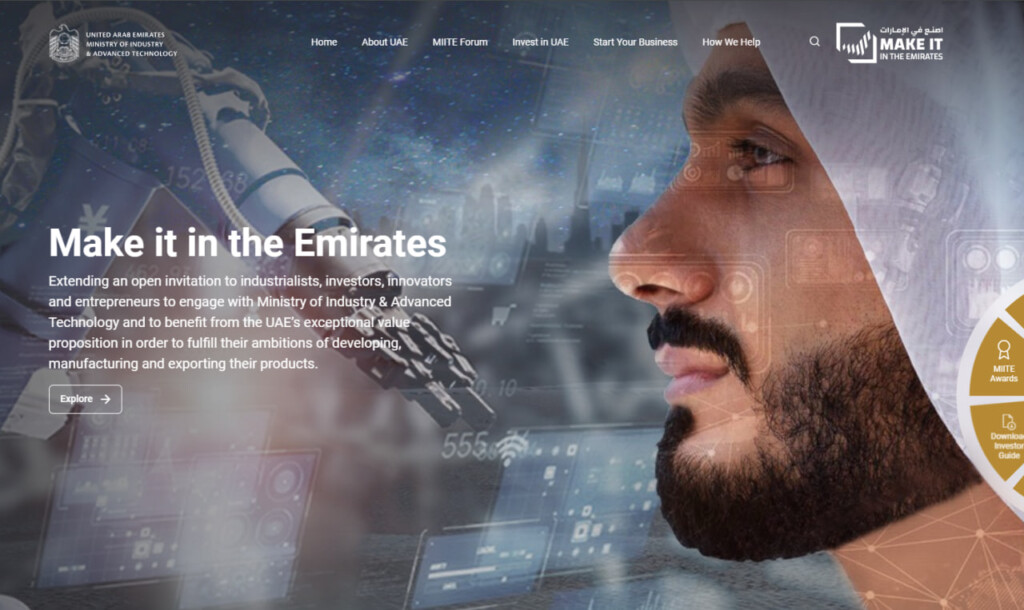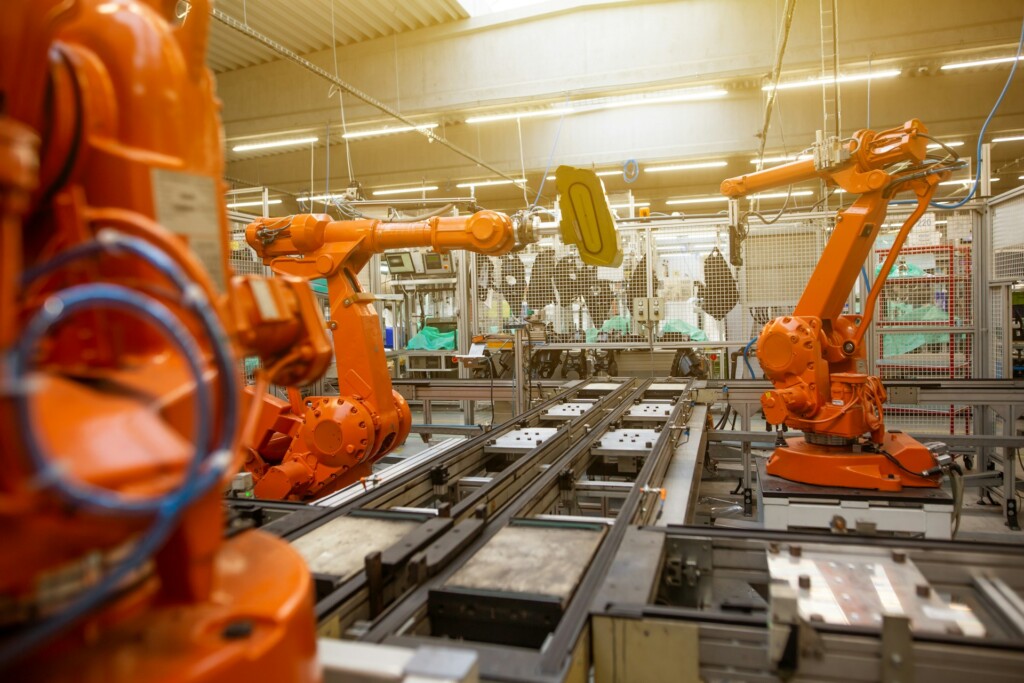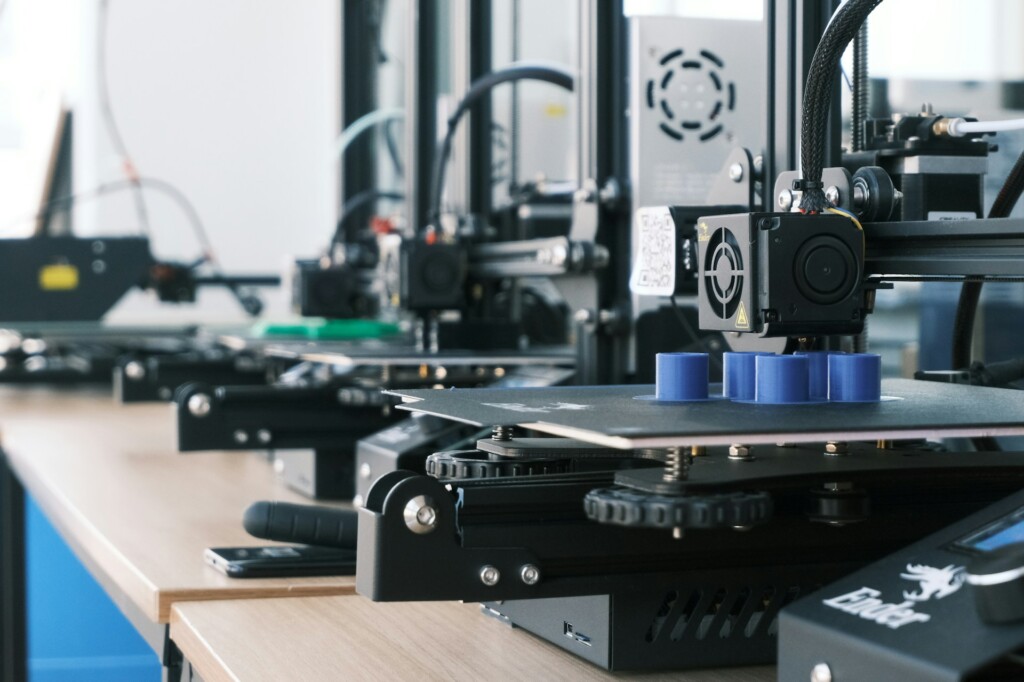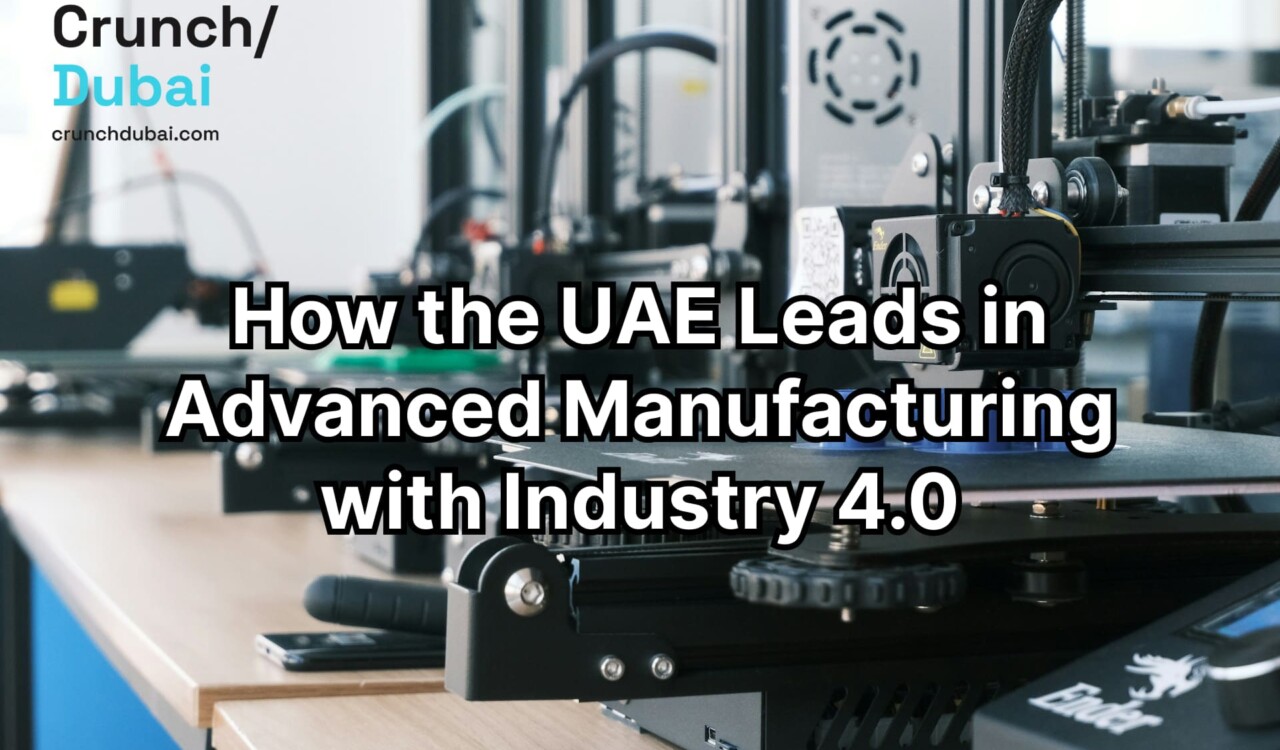The UAE is not just a land of oil riches and iconic skyscrapers; it’s rapidly emerging as a global leader in advanced manufacturing. Leveraging Industry 4.0 technologies, the nation is transforming its industrial landscape, setting new standards for innovation and economic growth.
UAE’s Vision for Advanced Manufacturing
The UAE’s strategic vision is clear: to become a global hub for advanced manufacturing. Government initiatives, such as the “Operation 300bn” strategy, aim to increase the industrial sector’s contribution to GDP to AED 300 billion by 2031. This ambitious plan includes fostering a robust ecosystem for high-tech industries, ensuring sustainable development, and creating job opportunities for future generations. More about these goals can be found on the page.

Key programs under this vision include the Industrial Strategy 2030, which focuses on creating an attractive environment for investments, enhancing productivity, and promoting innovation. The strategy targets critical sectors like aerospace, pharmaceuticals, and defense, emphasizing the importance of diversification away from oil dependency.
Key Technologies Driving Industry 4.0
Central to the UAE’s manufacturing revolution are cutting-edge technologies like the Internet of Things (IoT), Artificial Intelligence (AI), robotics, and automation. Companies like Strata Manufacturing and Emirates Global Aluminium are already integrating these technologies to optimize production processes and enhance product quality. For instance, the use of AI in predictive maintenance has significantly reduced downtime, boosting overall efficiency.

IoT is playing a crucial role in creating smart factories where machines and systems communicate seamlessly, leading to increased efficiency and reduced waste. Robotics and automation are revolutionizing production lines, allowing for precision and consistency that human labor alone cannot achieve. The integration of these technologies is not just improving productivity but also ensuring the safety and well-being of the workforce by reducing hazardous tasks.
Significant Investments in the Manufacturing Sector
The UAE’s commitment to advanced manufacturing is reflected in its significant investments. The country has attracted global giants like Siemens and GE to establish regional bases. These partnerships are not only bringing in capital but also facilitating knowledge transfer and technological advancements. The establishment of the Dubai Industrial Strategy 2030 further underscores the focus on sectors such as aerospace, maritime, pharmaceuticals, and medical equipment. .
Investment initiatives also include the setup of industrial zones such as the Khalifa Industrial Zone Abu Dhabi (KIZAD) and the Dubai Industrial Park, which provide state-of-the-art infrastructure and facilities to support manufacturing activities. These zones offer logistical advantages due to their strategic locations, enhancing the UAE’s connectivity to global markets.
Economic Growth and Job Creation
The economic impact of advanced manufacturing in the UAE is profound. The sector is expected to create thousands of high-skilled jobs, contributing to a diversified and resilient economy. Initiatives like the National In-Country Value Program ensure that local suppliers benefit, fostering a sustainable industrial ecosystem. The emphasis on upskilling the workforce is also crucial, with programs designed to equip Emiratis with the skills needed for the jobs of the future.
Read more about Manufactures on CrunchDubai:
By focusing on human capital development, the UAE is addressing the skills gap that can hinder technological adoption. Collaboration with educational institutions and specialized training programs are ensuring that the workforce is prepared to meet the demands of advanced manufacturing. This approach not only supports economic growth but also ensures social stability and prosperity.
Future Trends and Projections
Looking ahead, the UAE’s advanced manufacturing sector is poised for continued growth. The adoption of 3D printing and additive manufacturing is set to revolutionize production lines, making manufacturing more flexible and cost-effective. Furthermore, the UAE’s strategic location, coupled with its world-class infrastructure, positions it perfectly to serve as a gateway between East and West, enhancing its appeal to international investors.

The future of manufacturing in the UAE will likely see increased collaboration between government bodies and private enterprises to drive innovation. As global competition intensifies, the UAE’s proactive approach to embracing new technologies and fostering an innovative ecosystem will be key to maintaining its competitive edge. .
Conclusion
The UAE’s advanced manufacturing sector is a testament to the country’s forward-thinking approach and commitment to innovation. By embracing Industry 4.0 technologies, the UAE is not only boosting its industrial capabilities but also setting a global benchmark for others to follow. As the sector continues to evolve, it promises to play a pivotal role in the nation’s economic future.
Get Involved
Businesses and investors looking to capitalize on the UAE’s industrial boom can find ample opportunities in this dynamic market. For more information on how to get involved, visit the page.
By following these strategic insights and leveraging the UAE’s advanced infrastructure, stakeholders can play a vital role in this burgeoning industrial revolution. For further reading on Industry 4.0 technologies, visit .
